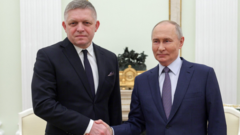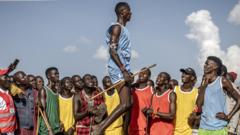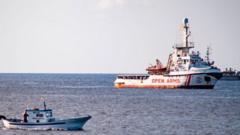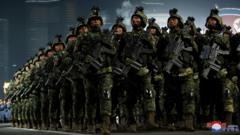As the ongoing war between Ukraine and Russia continues, the situation in Russian-occupied territories has grown increasingly severe, with numerous reports detailing acts of repression aimed at eliminating Ukrainian identity. Interviewed former detainees and human rights organizations have shed light on a systematic approach used by Moscow, reminiscent of past oppressive regimes.
# Ukraine Faces Systematic Repression Under Russian Occupation

# Ukraine Faces Systematic Repression Under Russian Occupation
In-depth reports reveal the harsh realities of life for Ukrainians in occupied territories including torture and forced citizenship policies.
In various Ukrainian cities such as Kyiv, Sumy, Odesa, and Kherson, journalists have compiled testimonies from individuals who experienced the brutalities of occupation first-hand. This investigation highlights the experiences of Yevheny, a 48-year-old lawyer who faced prolonged torture in a hidden facility—a tragic reflection of a wider pattern emerging in occupied areas. With over 100 prisons and informal camps documented, the Russian military's repression extends across approximately 40,000 square miles of Ukrainian territory.
The tactics deployed include torture, political propaganda, and forced assimilation via Russian citizenship mandates, aimed at generating an environment of fear and control among the local populace. As conditions worsen, human rights advocates emphasize the urgent need for international awareness and action given that many regions remain sealed off from independent observers. Reports indicate that such oppressive measures are designed not only to maintain control but also to quash any semblance of Ukrainian cultural identity, culminating in extensive human rights violations. The continuation of these narratives is crucial, as they provide significant insights into the broader conflict and human toll inflicted by ongoing military actions.
The tactics deployed include torture, political propaganda, and forced assimilation via Russian citizenship mandates, aimed at generating an environment of fear and control among the local populace. As conditions worsen, human rights advocates emphasize the urgent need for international awareness and action given that many regions remain sealed off from independent observers. Reports indicate that such oppressive measures are designed not only to maintain control but also to quash any semblance of Ukrainian cultural identity, culminating in extensive human rights violations. The continuation of these narratives is crucial, as they provide significant insights into the broader conflict and human toll inflicted by ongoing military actions.




















